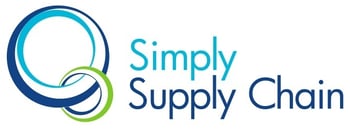Further import controls are coming on 31 January 2024. The full implementation of the Windsor Framework will happen in stages through into 2025, with some arrangements already in force.
Updated November 2023:
Further import controls are coming on 31 January 2024. The full implementation of the Windsor Framework will happen in stages through into 2025, with some arrangements already in force.
After delay, the BTOM will come into force from January 2024, which will oversee UK imports from the EU and rest of the world. The Model sets out the government’s approach to Safety and Security controls (applying to all imports), and Sanitary and Phytosanitary controls (applying to imports of live animals, germinal products, animal products, plants and plant products). Find the updated government guidance here: https://assets.publishing.service.gov.uk/government/uploads/system/uploads/attachment_data/file/1182464/Final_Border_Target_Operating_Model.pdf
Is your supply chain ready for these changes?
Due to demand we are running a second Customs & Borders workshop, for FMCG suppliers, on the 24th January 2024, at Warrens, Crick. The workshop will help suppliers ensure their customs solution is optimal and discover what the new changes will mean for their business and how to best prepare and avoid pitfalls.
Led by Robert Hardy, CEO of EORI Group and Ed Gilbert, Joint Head of Business Readiness Mission and Enablers Division, NI Directorate, DEFRA, we will be sharing insight into:
- Border Target Operating Model (BTOM)
- Windsor Framework (NIRMS and UKIMS)
- GB import simplifications
- SPS – new rules (including BCP locations)
- Export Health Certificate risk categories
- Food labelling
- Safety and Security declarations
The workshop will enable suppliers to ensure their customs solution is as cost effective and as efficient as it can be.
The Windsor Framework
August 2023:
The UK government has recently released further information on the Windsor Framework. The new guidance outlines the Northern Ireland Retail Movement Scheme (NIRMS), the new system for moving prepacked retail goods from Great Britain (England, Scotland and Wales) to Northern Ireland.
It is essential for suppliers to prepare form NIRMS as the scheme is scheduled to start on 1st October 2023 and WILL REPLACE the current Scheme for Temporary Agrifood Movements into Northern Ireland (STAMNI).
UK public health and consumer protection standards will apply for all retail food and drink moving to Northern Ireland through the scheme, including rules on:
- public health
- fisheries
- marketing
- organics
- labelling
- genetic modification
- drinks such as wines, spirits and mineral waters
Where relevant, these goods will still need to meet EU standards on animal and plant health.
The new framework will use a system of green and red lanes. Goods intended to remain in Northern Ireland will go through the green lane, requiring minimal checks and avoiding extensive and costly certification and assurance processes. The red lane will be used for goods not qualifying under the NIRMS, due for onward transport into the EU single market over the Irish border.
To avoid onward movements of goods into the EU, 'Not for EU' Case-level labels will need to be applied to all products, unless distributed in sealed containers (roll cages etc.) direct to store. Product labels will be introduced on a phased basis, beginning in October 2023 and concluding in July 2025..
Registration
The updates contained further guidance on how to register and seal consignments for NIRMS. Businesses can pre-register for the scheme between July 31st and August 24th. Full online registration will launch on September 1st. The business sending the consignment in Great Britain and the business receiving the consignment in Northern Ireland need to be registered for the scheme.
NIRMS: Groupage and Mixed Load Consignments
The new guidance also clarifies how groupage freight will be treated under the scheme.
If a grouped load contains both goods that comply with the NIRMS and those that are ineligible, the lorry as a whole cannot benefit from all the facilitations under the NIRMS. However, the goods that do comply can still benefit from using one general certificate, instead of requiring separate health certificates for each product.
While this guidance offers further clarification, the full extent of the implications of the framework remain unclear for many.
Customs and Borders: What Good Looks Like
For those who would like further clarity, join our expert led Customs and Borders Best Practice workshop, being rerun due to popular demand, sharing insight into the implications of the Windsor Framework, and covering additional topics such as the Border Target Operating Model (BTOM). Our workshop aims to help suppliers ensure their delivery routes and customs solutions are compliant, efficient and cost effective.
See full published government guidance here:



